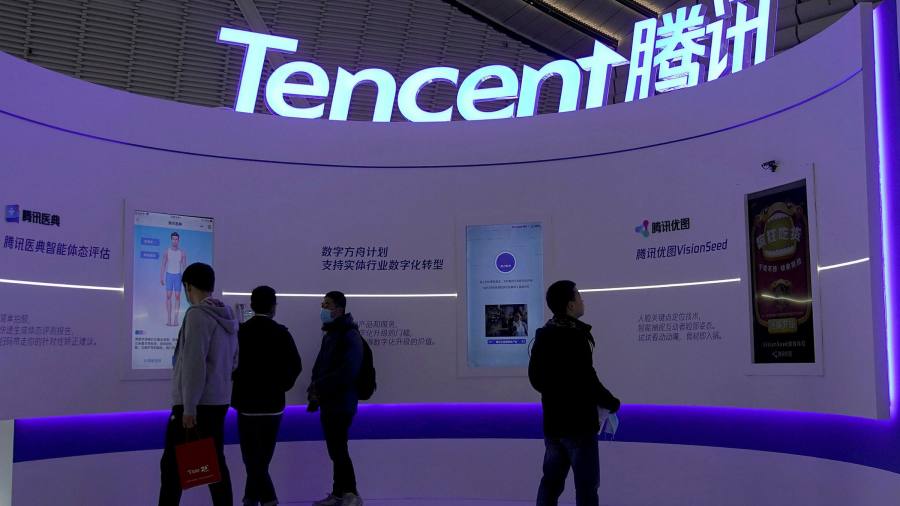[ad_1]
Tencent confirmed it is talking with Chinese antitrust regulators as big tech companies in the country come under scrutiny and chief rival Alibaba remains under investigation.Â
Chief executive Pony Ma said the company was “actively co-operating with the regulatory authorities†on various issues, including “sorting out some of these past investmentsâ€.
The company was recently fined by Chinese antitrust regulators for failing to seek approval for some of its past acquisitions such as a stake it took in online education platform Yuanfudao.
Tencent spent $12bn on investments in 163 start-ups last year, outspending Alibaba, and analysts at Bernstein estimate its investment portfolio is now worth roughly $260bn. James Mitchell, chief strategy officer at Tencent, said the group primarily took minority stakes in companies and that it was continuing to invest at a normal pace.
President Martin Lau maintained that the tech giant — which is involved in everything from gaming to social media and finance — was “compliant†with a host of new policies Chinese authorities have rolled out to tame financial risk and rein in unwieldy private enterprises.
Lau described Tencent’s meeting this month with China’s antitrust regulator as a “voluntary meeting . . . conducted in the normal course of businessâ€. He said they discussed creating a healthy environment for innovation in China.Â
“We have always been very focused on compliance, and we’ll continue to operate strictly in compliance with the rules and regulations,†Lau said.
Meanwhile, the Shenzhen-based company reported that revenue grew 26 per cent year on year to Rmb133.7bn ($20.5bn) in the fourth quarter, ahead of analysts’ expectations, as lockdown gaming internationally boosted sales and Chinese people spent more through Tencent’s WeChat Pay around the country.
Tencent’s net profit, adjusted for non-cash items and one-time gains, hit Rmb34.5bn, up 29 per cent from a year earlier. The company proposed a dividend of HK$1.6 per share.
In fintech, WeChat Pay holds about 40 per cent of China’s mobile payments market, second to Alipay at 55 per cent, and in co-ordination with affiliate WeBank also issues online loans to users.
Lau said Tencent was already in compliance with forthcoming new regulations for online lending, such as requirements that platforms put up 30 per cent of the capital for each loan, cap loans at Rmb200,000 and halt lending to students, among others.
“We’ve always approached our financial business with relatively strong self-discipline and self-control,†Lau said. “We co-operate with financial institutions, we don’t want to disrupt their businesses.â€
Analysts say Tencent has generally tagged along behind as rival Ant pushed the boundaries of internet finance. Ant is in the process of restructuring most of its business into a new entity called a financial holding company, which regulators will treat akin to a bank, as it hopes to salvage its business and make another try at a public listing.
Lau said Tencent was actively looking into setting up a similar structure and pledged it would be compliant if it was necessary. He said it would entail restructuring but would have “no real big impact on our businessâ€.Â
[ad_2]
Source link






